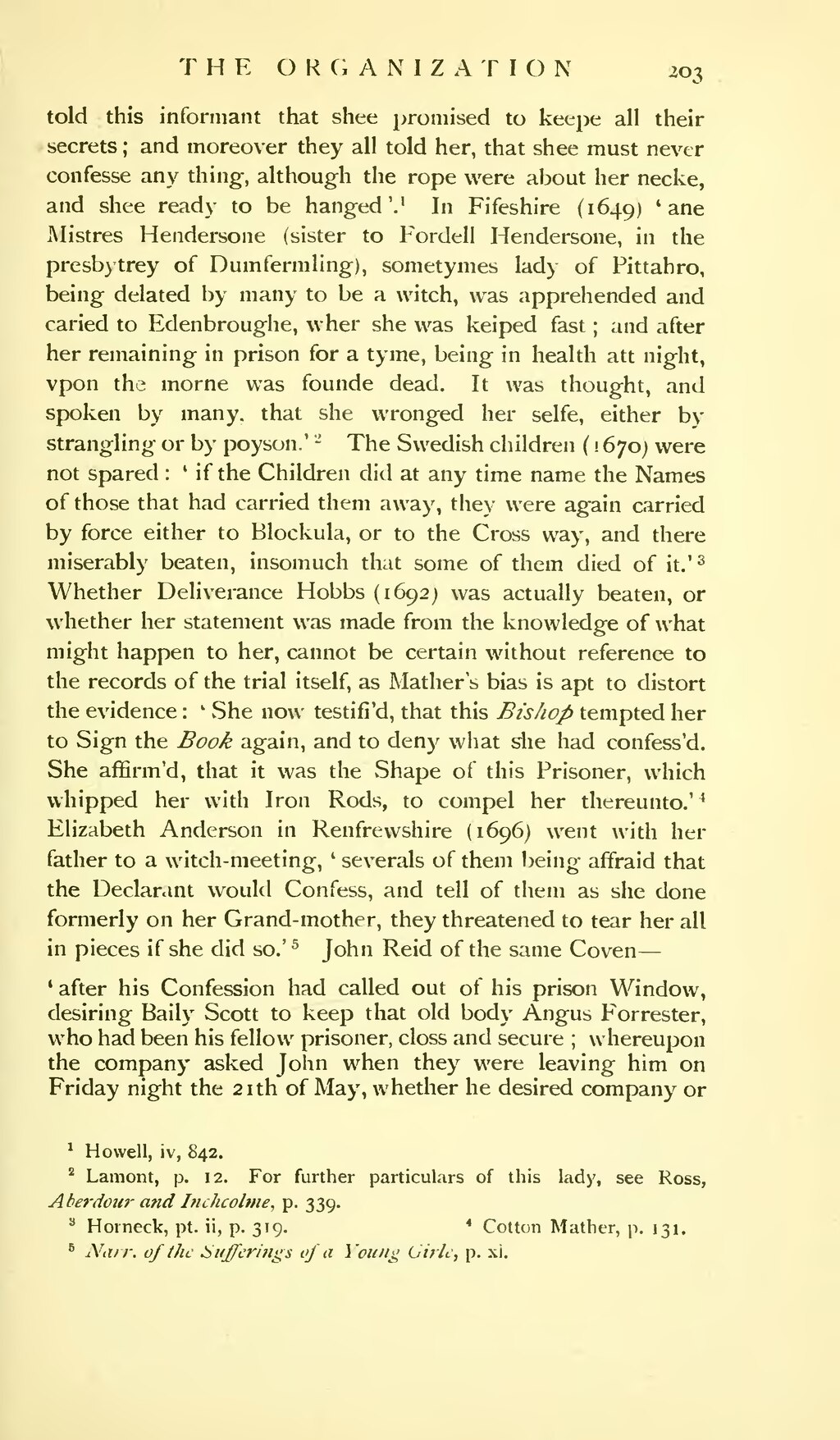told this informant that shee promised to keepe all their secrets; and moreover they all told her, that shee must never confesse any thing, although the rope were about her necke, and shee ready to be hanged'.[1] In Fifeshire (1649) 'ane Mistres Hendersone (sister to Fordell Hendersone, in the presbytrey of Dumfermling), sometymes lady of Pittahro, being delated by many to be a witch, was apprehended and caried to Edenbroughe, wher she was keiped fast; and after her remaining in prison for a tyme, being in health att night, vpon the morne was founde dead. It was thought, and spoken by many, that she wronged her selfe, either by strangling or by poyson.'[2] The Swedish children (1670) were not spared: 'if the Children did at any time name the Names of those that had carried them away, they were again carried by force either to Blockula, or to the Cross way, and there miserably beaten, insomuch that some of them died of it.'[3] Whether Deliverance Hobbs (1692) was actually beaten, or whether her statement was made from the knowledge of what might happen to her, cannot be certain without reference to the records of the trial itself, as Mather's bias is apt to distort the evidence: 'She now testifi'd, that this Bishop tempted her to Sign the Book again, and to deny what she had confess'd. She affirm'd, that it was the Shape of this Prisoner, which whipped her with Iron Rods, to compel her thereunto.'[4] Elizabeth Anderson in Renfrewshire (1696) went with her father to a witch-meeting, 'severals of them being affraid that the Declarant would Confess, and tell of them as she done formerly on her Grand-mother, they threatened to tear her all in pieces if she did so.'[5] John Reid of the same Coven—
'after his Confession had called out of his prison Window, desiring Baily Scott to keep that old body Angus Forrester, who had been his fellow prisoner, closs and secure; whereupon the company asked John when they were leaving him on Friday night the 21th of May, whether he desired company or
